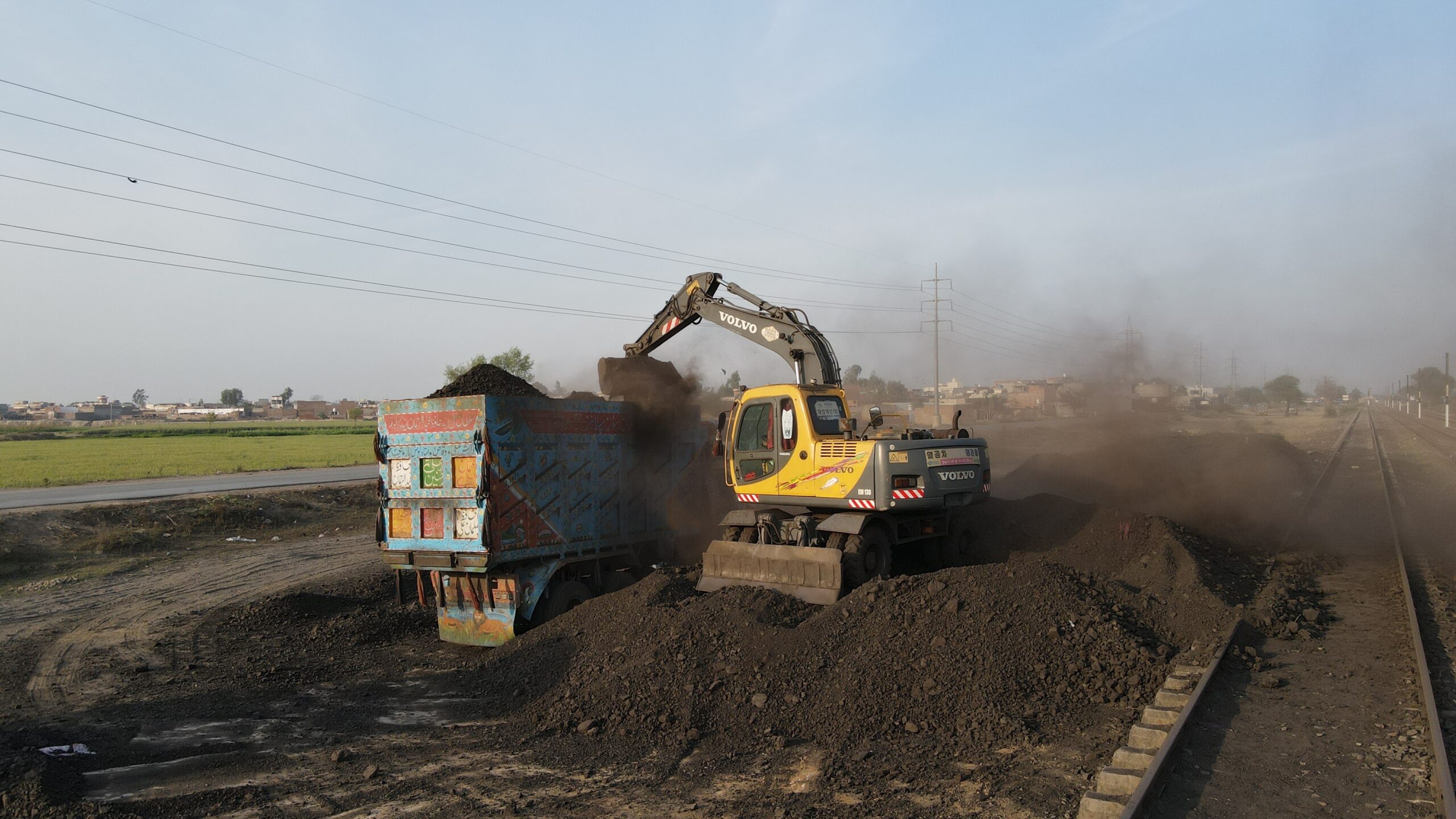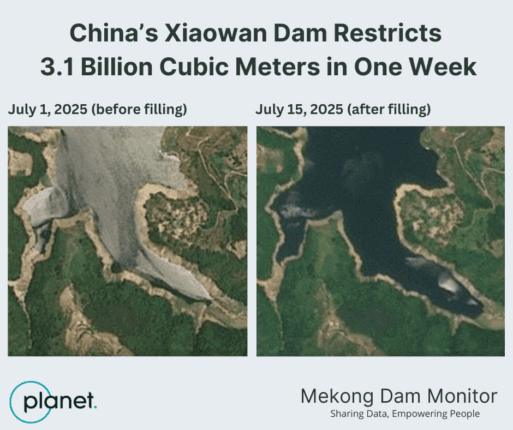-
Environmental Security Weekly Watch: July 21-25, 2025
›
A window what we’re reading at the Stimson Center’s Environmental Security Program
Community Patrols Offer a Blueprint to Enforcement of Conservation Law (Mongabay)
In the remote reaches of the Brazilian Amazon, an experiment in grassroots enforcement is yielding results. The Voluntary Environmental Agents Program, which trains and funds residents to patrol their own territories, has reduced illegal fishing, hunting, and logging by 80%. Operating in the Mamirauá and Amanã reserves, the program equips communities with surveillance tools, environmental education, and leadership training, weaving traditional knowledge into conservation efforts.
A new study in Conservation Biology found that 20,000 patrols carried out by over 200 community patrollers dramatically curbed illicit activities in the absence of government enforcement. Building local governance rather than relying on top-down enforcement offers a blueprint for protecting vulnerable ecosystems where state oversight is weak.
READ | To Help Save the Planet, Stop Environmental Crime
The Climate Crisis Identified as a Key Driver of Rising Global Food Prices (Al-Jazeera)
The climate crisis is a leading driver of skyrocketing grocery bills. A team of international researchers has traced extreme price surges directly to climate disruptions, from West Africa’s cocoa farms to Australia’s lettuce fields. After a devastating heatwave in West Africa, cocoa prices spiked 280%, while floods in Australia in 2022 sent lettuce costs soaring to 300% above normal.
The financial toll is already hitting households: in the UK alone, climate-related agricultural losses added USD to the average family’s annual food bill between 2022 and 2023. With more frequent and longer-lasting drought and flood events, researchers warn that stabilizing food systems will require slashing emissions now, or today’s price shocks will become the new normal.
READ | COP27: Growing Roles for Agriculture and Food Security
Seabed-Mining Firm Faces Legal Questions Over Controversial Trump Policy (The New York Times)
President Trump’s decision to greenlight deep-sea mining in international waters has thrown The Metals Company (TMC) into a legal storm. The startup, which has invested more than $500 million in technologies to mine the Pacific Ocean’s mineral-rich Clarion-Clipperton Zone, now faces growing backlash. At the International Seabed Authority, the body created through the UN Convention on the Law of the Sea to regulate deep-sea mining on the high seas, policymakers are pushing to revoke TMC’s permits, warning of ecological havoc. As China continues to dominate the critical mineral supply chain, the Trump administration sees deep-sea mining as a strategic necessity, setting the stage for a high-stakes clash between economic ambition, environmental protection, and international law.
READ | Deep Seabed Mining: Will It Rise to The Surface—and Where?
-
Taking the Slow Lane to Green Transition in the China-Pakistan Economic Corridor
›China and the Global Energy Transition // China Environment Forum // Guest Contributor // July 24, 2025 // By Hong ZhangPakistan’s summer sun is relentless, but its golden rays may hold a promising clean energy solution.
During my visit to that country last summer, an energy sector expert I met expressed amazement that Pakistan had imported 13 gigawatts of solar modules from China in the first six months of 2024. Media reports celebrated how even remote villages were adopting rooftop solar systems. International observers lauded Pakistan’s “stunning solar boom.”
-
The Mekong Dam Monitor Tracks a River Under Pressure
›
The Mekong River’s seasonal floods nurture the world’s most productive inland fishery and irrigate rice paddies that feed millions. Approximately 70 million people live in the lower Mekong Basin, and 75% of them depend on fishing and farming for their livelihoods. But hydropower expansion and other development projects are fragmenting the river and disrupting its natural rhythms, with severe consequences for those living downstream.
-
Environmental Security Weekly Watch | July 14-18
›
A window what we’re reading at the Stimson Center’s Environmental Security Program
The World’s Children Face the Most Severe Impacts from Wildfire Smoke (Mongabay)
Evidence of the alarming impacts of wildfire smoke on child health is growing. Children’s developing lungs, faster breathing rates, and greater outdoor exposure make them uniquely vulnerable, and the threat is intensifying as wildfires grow more extreme, incinerating not just forests but urban areas, releasing toxic heavy metals and chemicals.
-
Damming the River by Feeling the Stones: China’s Mekong Hydropower Strategy
›For decades, China has been the dominant force in hydropower development across the Mekong subregion, financing, and constructing massive dam projects that have transformed Southeast Asia’s economic and environmental landscape. Many analysts have framed this expansion as a meticulously orchestrated strategy to extend Beijing’s economic and geopolitical influence. But this narrative obscures a more complex reality—one in which China’s dam-building in the Mekong has been shaped by trial and error, reactive policy shifts driven by external shocks, local resistance, and intensifying geopolitical competition.
-
Is Peace Enough? Why Sustainability Requires More Than Stability
›July 15, 2025 // By Richard Marcantonio
Around the world, conflict and environmental risks are on the rise – and they’re often connected in complex ways. In the past five years alone, the number of global conflicts has doubled. At the same time, human activity is pushing the planet beyond the ‘safe operating space’, increasing the risk of instability.
Researchers studying the links between conflict and environmental change have found that war and violence almost always harm the environment. But the reverse connection – whether environmental stress leads to conflict – is much harder to pin down. That’s because political systems, local institutions, and social dynamics often shape how environmental pressures play out.
Findings from recent studies suggest that sustainability and peace are positively correlated. In other words, the results suggest that peace and sustainability go hand in hand. If true, pursuing one could help achieve the other. But what if it’s not that simple?
-
Environmental Security Weekly Watch | July 7 – 11
›
A window into what we’re reading at the Stimson Center’s Environmental Security Program
Heat-Related Deaths May Have Tripled during Europe’s Heat Wave (Washington Post)
A record-breaking heat wave in late June and early July pushed temperatures well above 100°F across Europe. Analysis from Imperial College London and the London School of Hygiene and Tropical Medicine found that of the 2,300 heat-related deaths in 12 major European cities between June 23 and July 2, 1,500 would not have occurred without the additional 1.3°C of warming caused by climate change.
-
Three Takeaways From the Third UN Ocean Conference
›July 10, 2025 // By Carolyn Gruber
“There cannot be a healthy planet without a healthy ocean. It’s urgent business for us all,” said U.N. special envoy for the ocean, Peter Thomson, at last month’s UN Ocean Conference (UNOC).
Hosted in Nice, France, the conference brought together more than 15,000 political leaders, scientists, civil society, the private sector, academic institutions, Indigenous peoples, local communities, and philanthropic organizations with the goal of identifying innovative ways to finance and mobilize action for the ocean.
 A Publication of the Stimson Center.
A Publication of the Stimson Center.













